Read on for our detailed analysis of each host
While it's initially cheaper to rent your own IT hardware and infrastructure in the short-term (think traditional web hosting), as your business needs grow there comes a point when it becomes more economical to buy your own server hardware. However, you then need a data center to host your equipment. This is where colocation services come into play, where racks and cabinets are leased to you, enabling you to set up your own server hardware in the heart of a data center.
Making a decision on which provider to use is far from easy. If your business has mission-critical needs then you'll want to reduce latency. Additionally, you may need to look for hosting on the west coast for optimal Asian connections, east coast for European ones, or mid-state for the best general connectivity across the US. However, you need to ensure that the geographic siting works for you, by balancing a combination of network connectivity, resiliency, and disaster recovery considerations, as well as ease of access.
The good news is that there are a wide range of options. There are a lot of data centers available, with good networks across the US, and the industry is highly competitive. That means pricing will tend to be very affordable according to your needs.
All providers should be able to offer different cabinet sizes to suit you, plus different power configurations according to needs, on top of standard security and redundancy measures across the data center itself to protect client hardware and ensure it runs even in the event of a power outage.
The question of which operation to pick might seem overwhelming, so here we'll feature some of the best in the industry. Some of these colocation services are provided directly by the data center, but others are companies that lease cabinets from them while offering additional support options for added value.
- Looking for UK colocation hosting? We’ve highlighted five capable providers here
- We've also put together a list of the best web hosting solutions
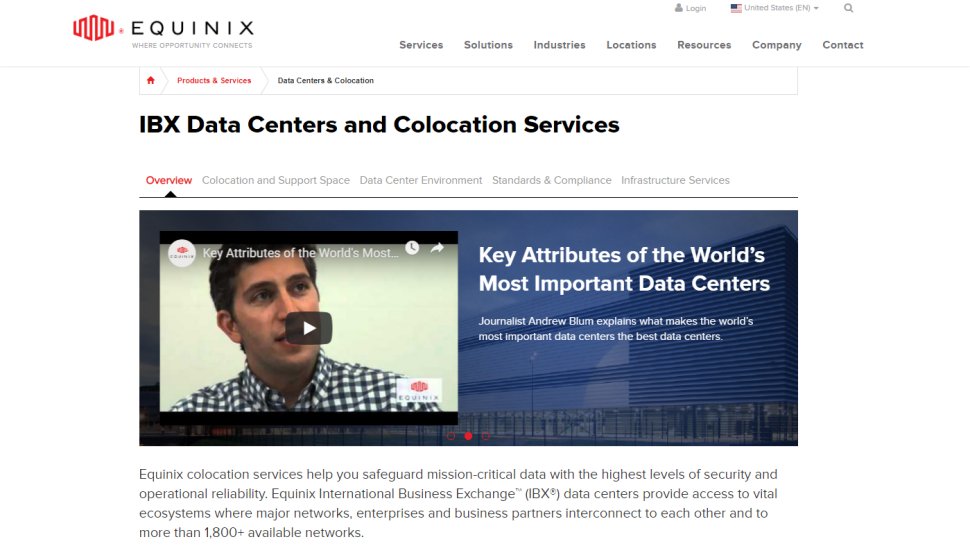
Equinix boasts one of the biggest worldwide distributions, with over 220 data centers across 67 markets and 27 countries in 5 continents. This provider also offers 2,500+ network connections and an industry-leading uptime of over 99.9999%.
In terms of choice, Equinix has plenty. You can configure and support your deployments according to power needs in cage, suite, or server cabinet solutions, or even colocate in pods that act as dedicated rooms. There are other options for mitigating risks for financial services companies, and a range of virtualization opportunities.
Overall, the number of options could be potentially overwhelming, and as with many big service providers, small business customers may not feel they get the same personalized support that other SMB-focused colocation providers can offer.
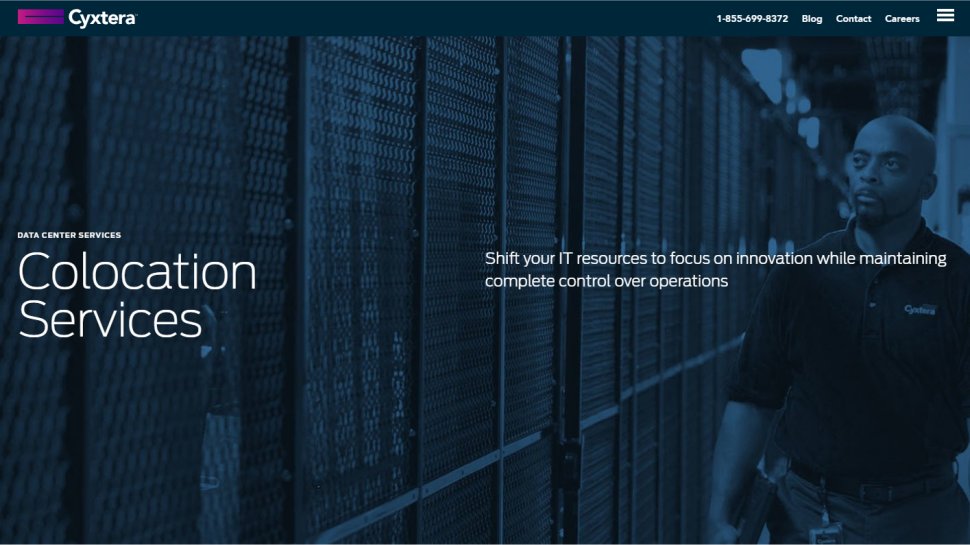
Cyxtera boasts over 60 data centers across four continents, with the backbone of these being spread across the US. This impressive coverage is partly due to its purchase of CenturyLink's hardware assets, though CenturyLink still provides the network connections.
In terms of options, Cyxtera offers plenty, as you'd expect from a big company. It also provides multiple levels of support and specifications according to individual business needs. It's also worth noting that the Cyxtera data centers are really nicely spread out across the US, which means that you should be able to minimize latency and lag issues across the country.
A nice extra touch is that you can actually use your own cabinets if you'd rather not go with those provided, which could be important if you have a particularly customized server setup and configuration – though note that for security reasons Cyxtera technicians will need to install it.
Overall, this is another major provider that should be able to deliver on the hardware support you need.
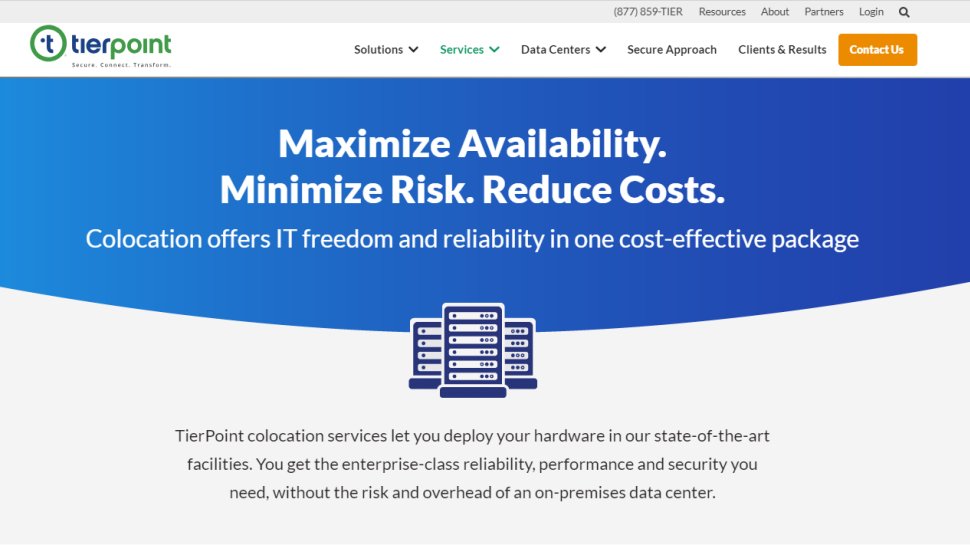
Tierpoint is another major provider, with over 40 data centers across the US. The central point to bear in mind here is that these tend to be in eastern states, which means in terms of connectivity they are ideally optimized for US and European operations, but latency issues may be a concern if connecting to Asia.
There are plenty of options for colocating available, as might be expected. One particularly nice feature is a business continuity workspace, so that if you face a major task or recovery process, you can plug yourself into a private area while you try to get everything sorted out. Tierpoint also advertises migration services, to make any move to Tierpoint from another provider as seamless as possible.
Tierpoint offers a standard range of options that mean it should be easy to accommodate and support you. This company is one of the major players so should be able to deliver, just keep an eye on a location that works best for you.
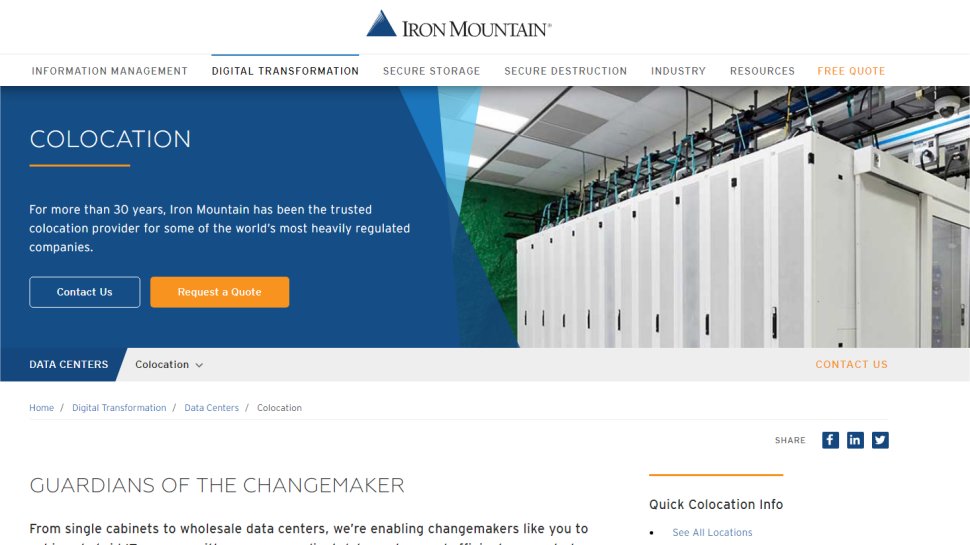
Iron Mountain is one of the mid-range providers, having a string of 15 data centers across the backbone of America, running from coast-to-coast, along with a handful more in Europe and Asia. This presents a strong level of global connectivity alongside its network providers, even though it has fewer data centers than those providers we have covered above.
However, Iron Mountain is an experienced and established company, and claims to host a large number of Fortune 1000 organizations. It puts a particular emphasis on compliance and reliability.
Where Iron Mountain particularly distinguishes itself is in its colocation options: the company doesn't simply talk about cabinets, cages, or suites, but of building custom modular solutions across the floorspace of its data centers.
Overall, while Iron Mountain may seem to offer less geographic options than the companies above, that doesn’t mean it won't deliver the highest standards.
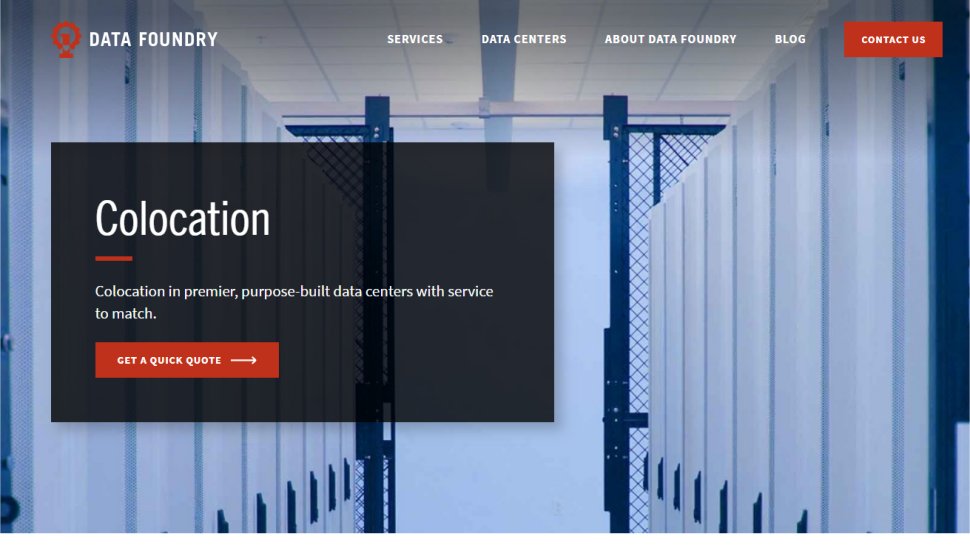
Data Foundry is a major player in Texas, owning a handful of data centers across Austin and Houston. While this makes the company seem a little limited geographically, Texas has proven to be a strong center point for data operations across America. Using carrier-neutral data centers means that whichever US states your customers are in, you should be able to reach them with minimal lag or latency.
A particular selling point Data Foundry advertises is that not only has the company custom-built its data centers itself, but that all technicians are company employees rather than contractors, which means you should expect all the expertise you need to already be onsite.
The one caveat is to keep an eye on contract lengths, as you may want to avoid signing multi-year commitments if you find your IT needs change during the contract period.
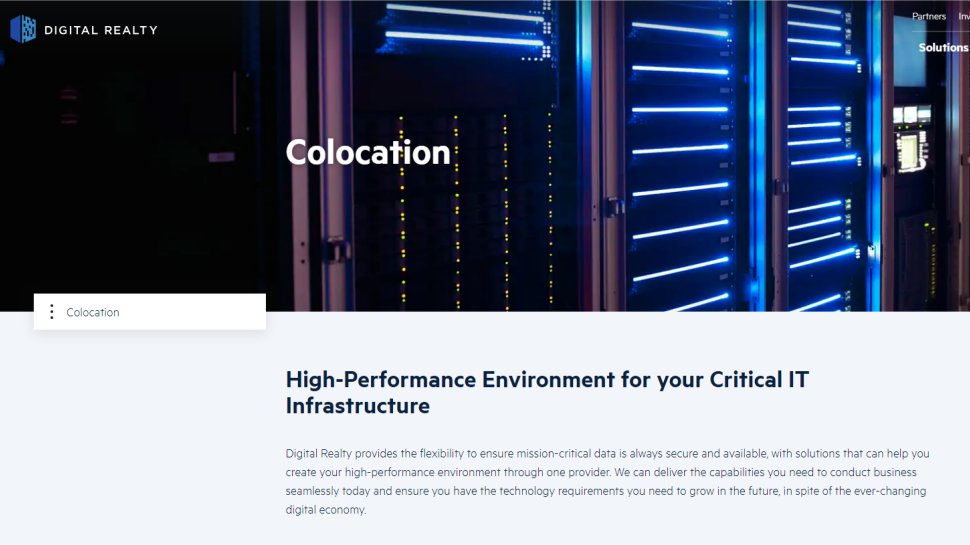
Digital Realty is one of the biggest players when it comes to data centers, with a truly global presence through a mixture of partnerships. The company owns over a dozen data centers that serve the east and west coasts, as well as central regions such as Houston, Dallas, and Chicago. It also owns data centers in Europe, as well as having partnerships in South America, East Asia, and Australia.
Connectivity is a particular strong point, geared towards supporting mission-critical applications for finance, healthcare, and even social media companies.
While it offers the usual range of cabinets and cloud options, Digital Realty further makes an effort to ensure its data centers are as green as possible, winning various awards for the use of environmentally-friendly technology to minimize power and energy waste.
Although Digital Realty positions itself as a global player, another strength is local support, so you don't have to feel overwhelmed if you're a small business looking for a solution.
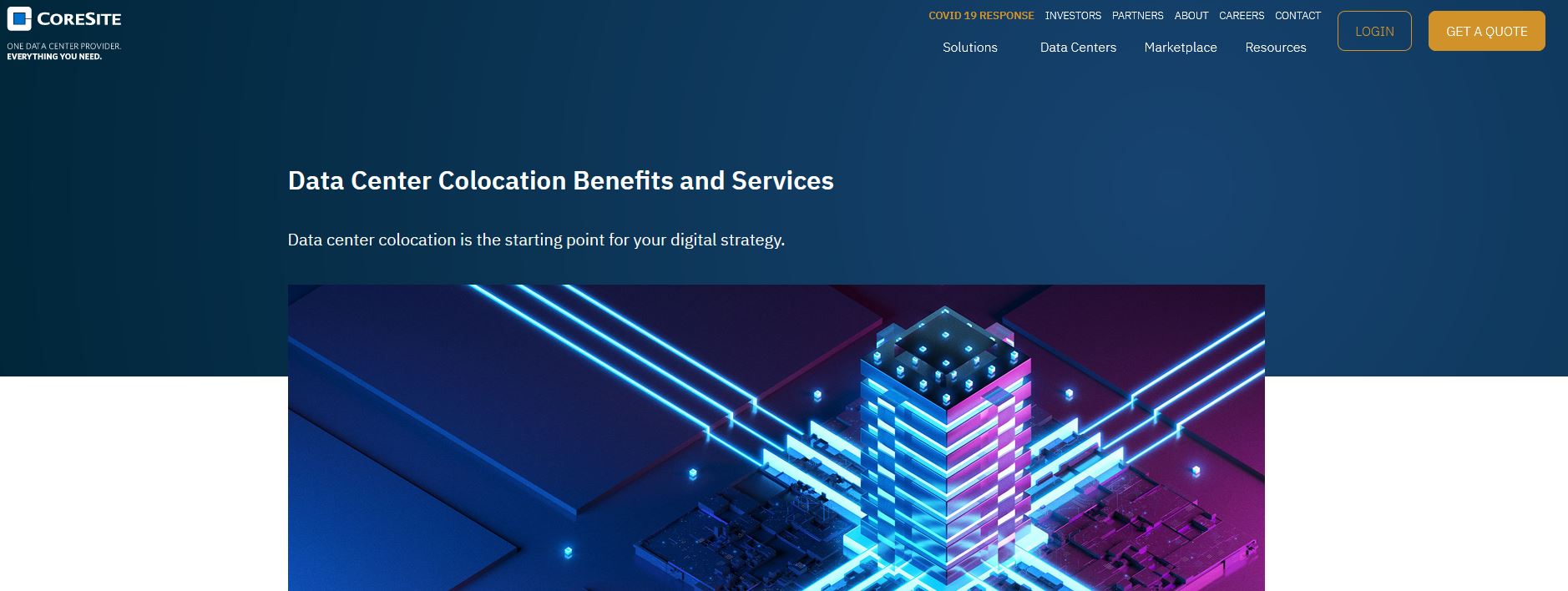
CoreSite is another significant player in the US market, with over a dozen data centers across America, especially on the seaboards, but also with some central locations in-between. This positions the company as especially optimized not just for the US market, but also Europe and Asia.
While it offers standard colocation packages of cabinets, cages, and private suites, CoreSite also allows colocating companies to interconnect their hardware across multiple data centers, making them especially useful for cloud and network providers, as well as enterprises.
Overall, CoreSite is a solid provider backed up by excellent network hardware and IT infrastructure, with a good spread of locations and an impressive range of colocation options.
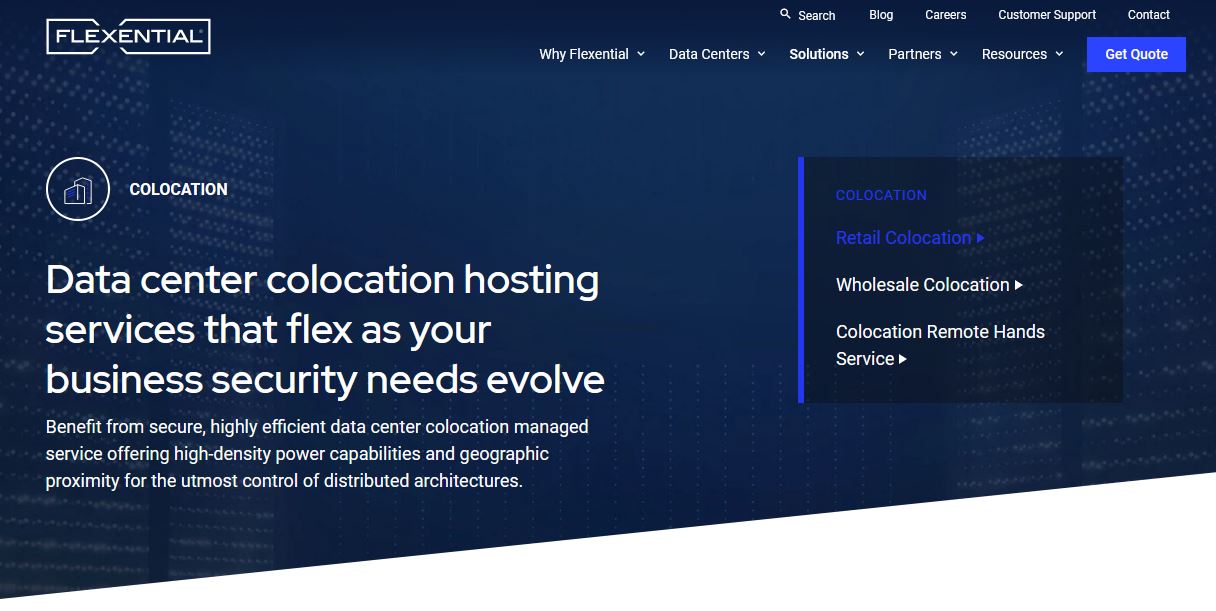
Flexential was formed in 2017 through the merger of both Peak 10 and Viawest, both of which were already established providers. The result is a network of 41 data centers across the US, with the caveat being that most are in mid-state locations. Also, these tend to be small data centers rather than regional behemoths, meaning that while Flexential has a good geographic spread, it may not be the best choice if you have mission-critical applications connecting to Europe and Asia.
That's also a strength, though. While a number of data centers offer to monitor and manage your hardware, Flexential is one of those companies where you can realistically do so yourself without living on the eastern or western seaboards.
However, not all of Flexential's data centers are available for colocation, so you'd need to check availability first. Otherwise, Flexential is a company that will particularly appeal to smaller and mid-range companies, and could be a very good place to grow, especially if you don't plan on needing a large volume of server hardware in the short-term.
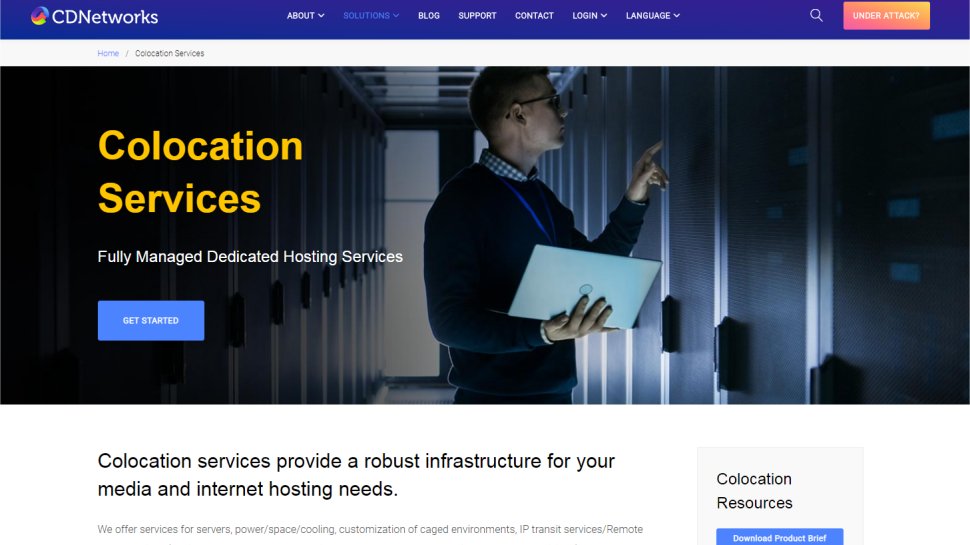
CDNetworks is a global network provider with over a dozen data centers, of which more than half are located in eastern Asia. While it does have US data centers, both of these are in California, again making these optimized for Asian connections. That doesn't mean to say that CDNetworks would not be useful for US companies looking to reach US customers, but rather that it has a global reach with a focus on Asian markets.
Of course, even if you wanted to reach the latter from the US, it might be difficult to be hands-on with server hardware without incurring significant costs. However, CDNetworks offers managed solutions so that you can delegate these IT tasks directly to the company. This has pluses and minuses in that it should help reduce costs, at least in the short-term, especially for smaller and mid-sized companies. However, it does also mean that you have less direct control over your servers.
Overall, CDNetworks offers good connectivity globally, but you're probably going to get the most out of this provider if you're aiming for Asian markets in particular, and are happy to delegate a lot of your IT management.
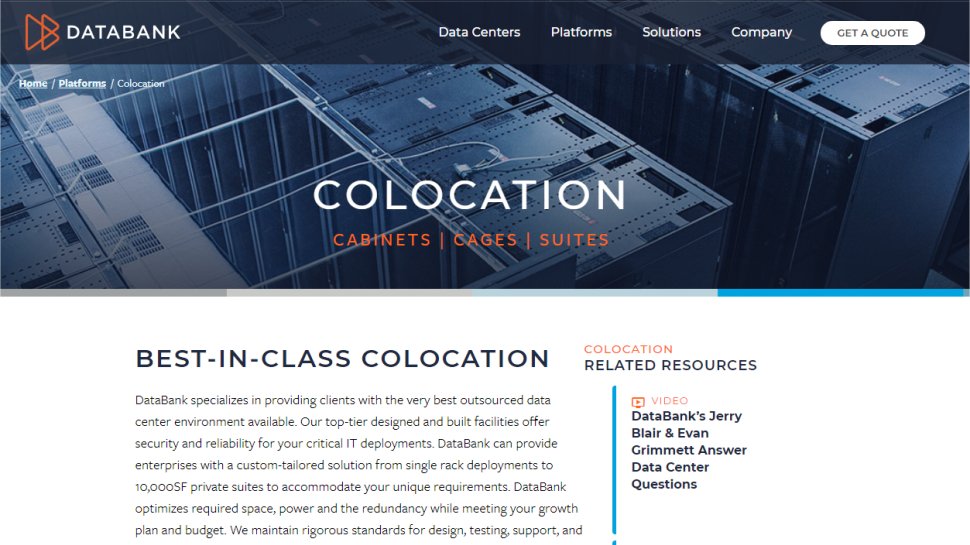
DataBank offers colocation from 55+ data centers situated across nine US states, making it a particularly attractive provider for colocation services between the seaboards. Even better, it provides managed solutions so you can delegate your IT management to DataBank's own technicians.
As mentioned previously, this comes with positives and negatives, and you'll need to balance them in terms of ease-of-use versus less control over your hardware management. The latter, of course, may make DataBank particularly attractive if your business is too small to have an expert IT team. Even if you do have one, the data center locations are among the most accessible of the companies featured here.
As expected, DataBank offers a range of options, not least in terms of cabinets, cages, and custom suites, as well as cloud options. With good connectivity across the US, this could make DataBank an especially attractive colocation provider.
UK colocation hosting options
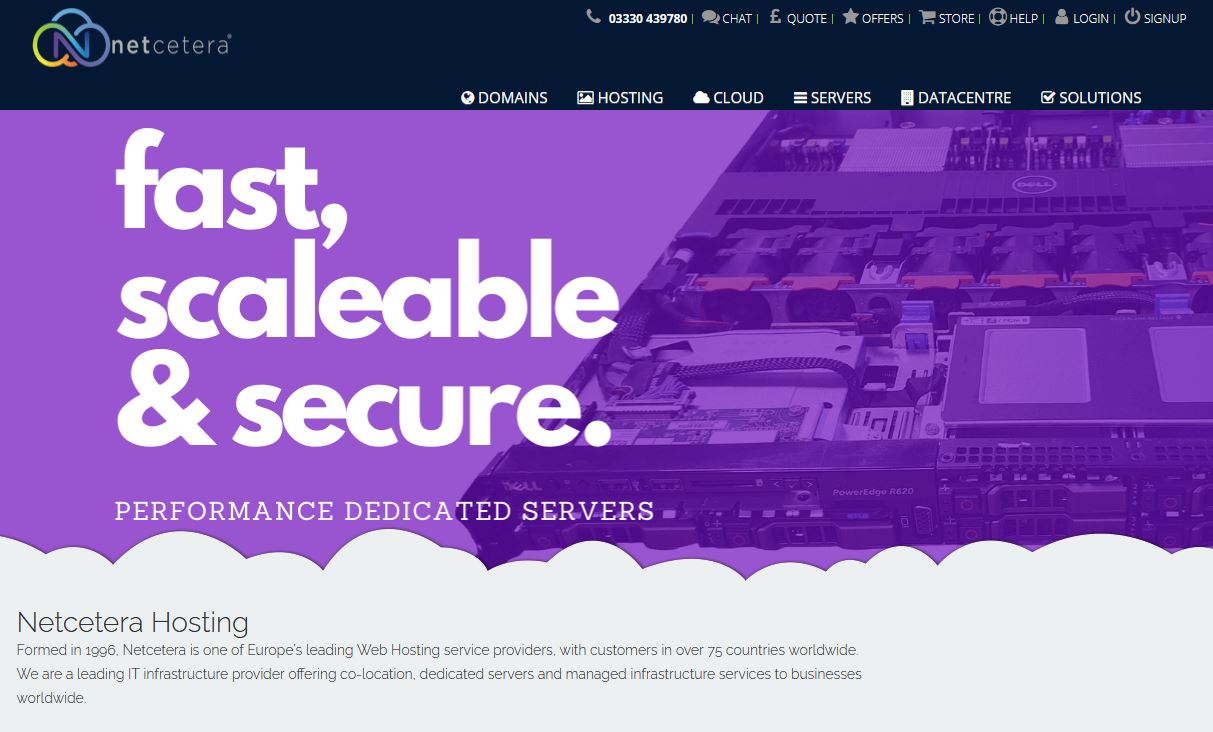
Note: Currently, Netcetera isn't offering colocation services.
Netcetera is an experienced web host that has been providing data center solutions for more than 20 years to businesses all around the world.
The company's Isle of Man-based data center may not be the most convenient place to colocate your server, but it does provide reliable power, high security, and support to handle reboots, upgrades, backups, restores and other essential maintenance tasks.
As a surprise green bonus, a carbon offsetting scheme means Netcetera's data center is 100% carbon-neutral.
Colocation prices start at just £35 per month for a single server with 1U to 5U and 0.5 amp power. Network uplink is 1Gbps with 500GB bandwidth – you also get 5 IP addresses, setup is free, and, in a very generous move, there's unlimited Remote Hands support.
Netcetera also offers quarter, half and full rack plans priced from £300, £500 and £900 per month. Bandwidth is a chargeable extra, but this does allow you to define more precisely what you'll need, a flexible approach which could save you money overall.

Founded in 2005, Netwise Hosting is an experienced provider with its own data center in central London, and partner centers in Docklands.
Colocation plans start at just £49 a month. This only gets you a minimal 1U of space, 0.5 amps conditioned power and a single IP address, but your data transfer allowance is reasonable at a monthly 1TB.
Netwise Hosting clearly believes in choice, because that's just the start. You also get 2U and 4U plans, as well as quarter, half or full rack space (all lockable for extra security), and multi-rack options are available if you need them.
There are plenty of advanced options here. Are you using MPLS (Multi Protocol Label Switching) to connect your systems, for instance? Netwise Hosting can support L2 and L3.
The company also provides a very complete set of colocation services, including migrating your server from another location, racking equipment for you, managing systems or providing 24/7 support.
If you're unsure about the options, the website has a Colocation Calculator where you're able to choose the plans and features you need, and get a price right away.
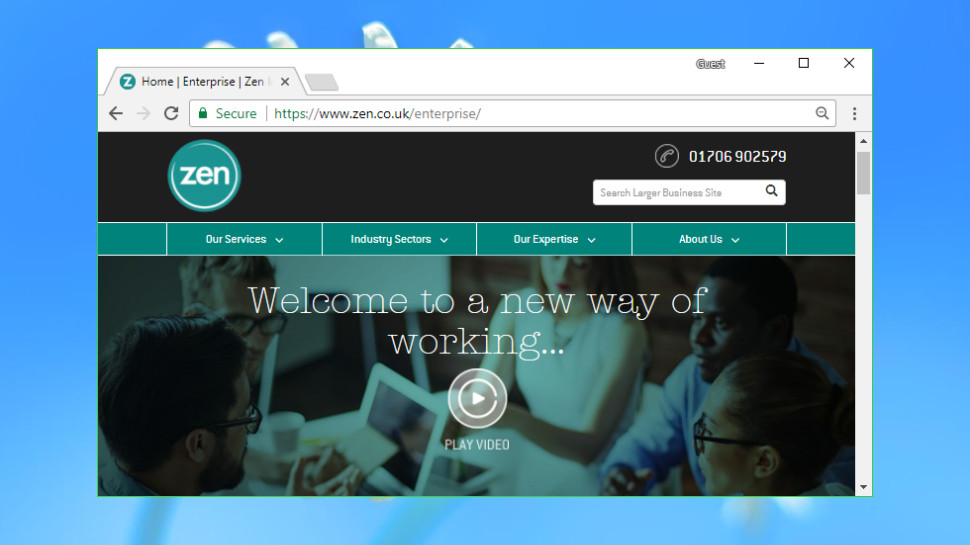
Zen Internet is best known as one of the UK's first ISPs, having been providing web access to the masses since 1995. But the company uses its networking expertise to support other services, too, including colocation in its Greater Manchester data center.
Simple shared rack plans were priced from £59 a month, with 1U of rack space, 0.5 amps of power, and your choice of a data transfer allowance or an allocation of fixed bandwidth allowance. Now, you pay a monthly cost based on how much space, power and bandwidth you require and you'll need to get in touch with them for further information.
Still, you are covered by a generous service level agreement which guarantees 100% power availability, 99.999% for network and 99.97% HVAC (heat, ventilation and air conditioning), with a one hour 'at rack' guarantee in the event of any problems.
If any issues crop up, Zen's Remote Hands support service can check status indicators, reset or reboot your hardware, replace circuit patch leads and patch panel connections, and even change hot-swappable components, if you've provided spares. You get up to a generous five Remote Hands sessions a month, each lasting up to one hour – some hosts might restrict you to a single session of just 30 minutes.
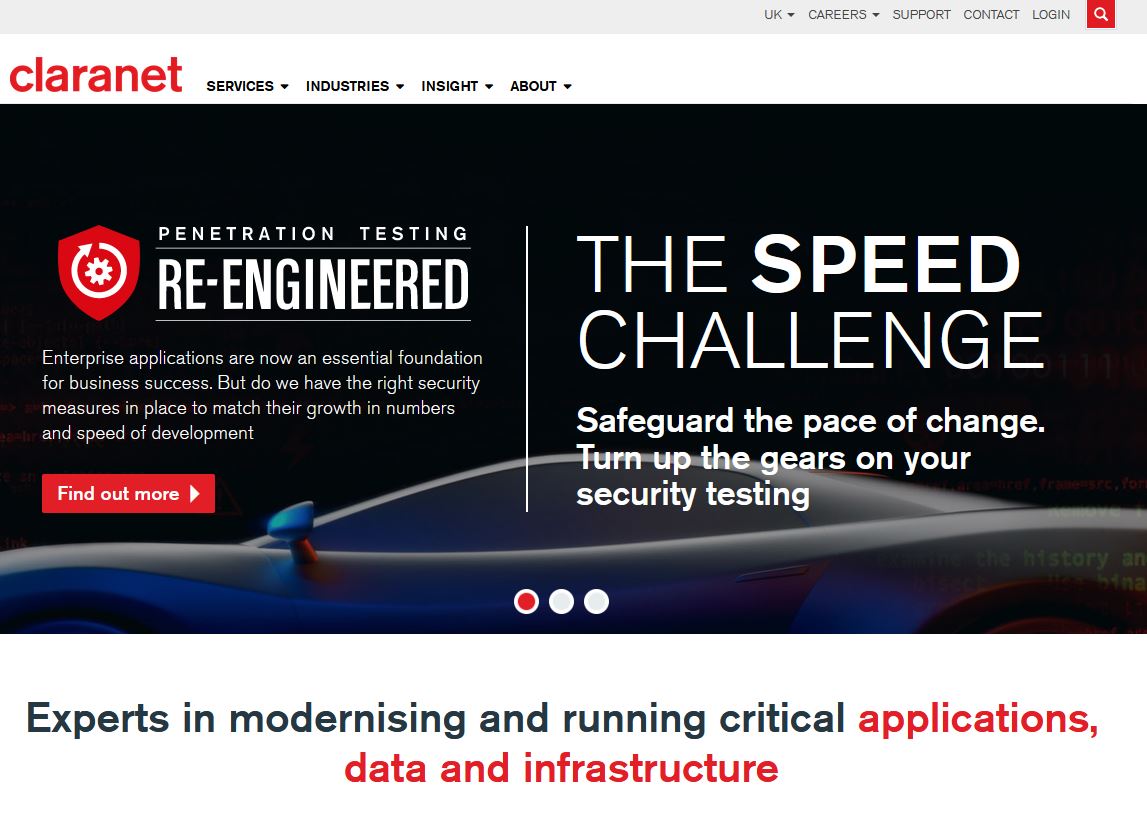
Claranet is a top European provider with more than 20 years’ experience in delivering managed IT services to businesses around the world.
The company manages multiple data centers, with five available for colocation. Your London options are Global Switch London East, Telecity Harbour Exchange Square and Telecity Sovereign House, and there are also centers in Hoddesdon (Hertfordshire) and Manchester.
Claranet doesn't try to compete with others for the lowest advertised price (in fact, it doesn't advertise a price at all – you have to contact the company and ask for a quote). There are no almost useless 1U plans, for instance: you must choose a quarter, half or full rack. As of late, the colocation page redirects to Hybrid Cloud section, so there might be some changes for colocation services.
Still, there's plenty to like here. Cabinets are all lockable to keep your hardware secure. Flexible power options ensure you get exactly what you need. You're able to access your server 24/7. There are flexible contracts available from a minimum of 30 days, with some benefits if you opt for longer terms (you get free installation if you sign up for three years). Well worth a look if you'd prefer to colocate with a big-name provider.
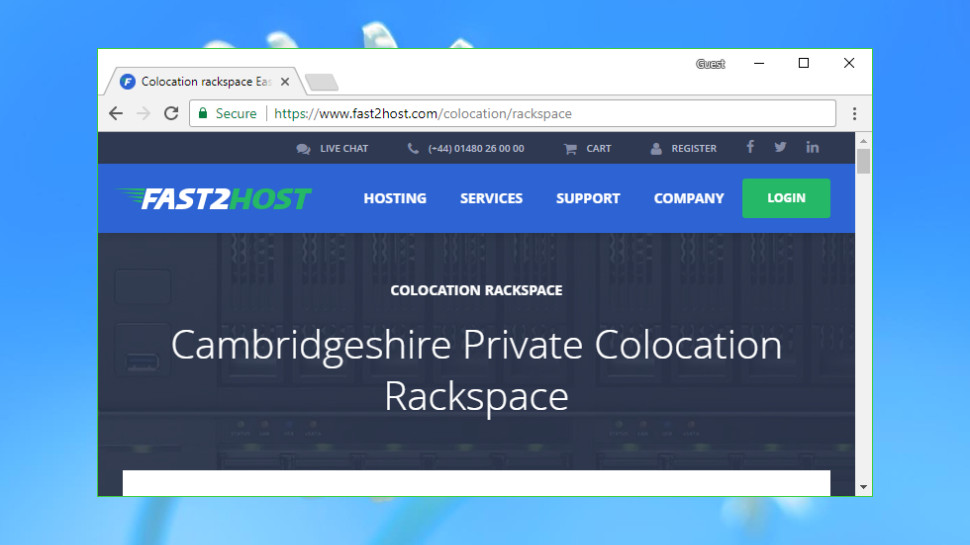
Colocation is often marketed as a high-end hosting solution for big corporations only, but the reality is very different. Even the smallest business can benefit from the extra speed and control you might get with a colocation plan, and if you choose the right provider, low prices and contracts as short as a month allow almost anyone to try the service out.
Fast2host won't be the most convenient colocation host for everyone. It only has a single data center in St Ives, Cambridgeshire. Customers with lesser plans (1U-3U) don't get 24/7 access to their hardware, and standard Remote Hands support is limited to a miserly 45 minutes a month (30 minutes for 1U-3U), even for full rack plans.
On the plus side, Fast2host offers real value, especially with the starter plans. 1U of rack space gets you 0.8 amps of power, rather than the 0.5 amps typically provided elsewhere. The data transfer allowance is a generous 1.2TB a month. ICMP and HTTP monitoring, often an optional extra with other providers, comes for free here. A 100% SLA on power and 99.99% SLA on network availability will be good enough for most users, yet all this can be yours from as little as £45 a month.
If you need more, Fast2host's website makes it very easy to explore your options. There's no bulky comparison tables, and the company doesn't force you to contact them to get a quote: just click a plan (1U-5U, quarter, half or full rack), then you can instantly view the details and place your order in a couple of clicks.
You might also want to check out our other website hosting buying guides:
- Best WordPress hosting providers
- Best cloud hosting providers
- Best Linux web hosting services
- Best e-commerce hosting
- Best dedicated server hosting
- Best small business web hosting
- Best Windows hosting services
- Best managed web hosting
- Best business web hosting
- Best email hosting providers
- Best web hosting resellers
- Best VPS hosting providers
- Best shared web hosting
- Best cheap web hosting
- Best website builder
- Best web hosting
April 30, 2021 at 12:05PM from TechRadar - All the latest technology news https://ift.tt/3mVe8cy
via IFTTT

No comments:
Post a Comment